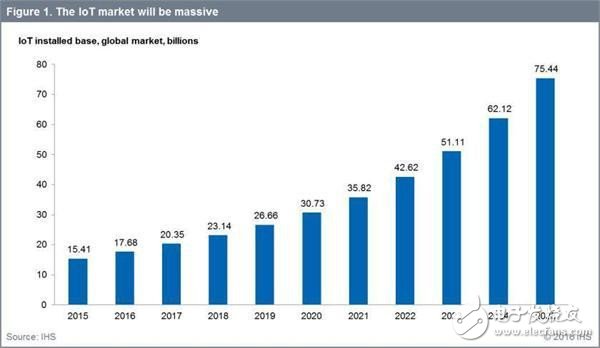Internet of Things and Network Security: How do you get along with the enthusiasm?
A large-scale attack caused the Internet of Things to cause large-scale embarrassment in the US network more than a month ago. Even Twitter and Amazon could not escape. An important selling point of Amazon's cloud computing service is that it can temporarily mobilize a large number of Computing resources respond to cyber attacks. According to the results of the survey, the large-scale blocking service attack that caused more than 1,200 websites to be inaccessible is different from the general hacking, but is launched by thousands of IoT devices including cameras, video recorders and routers. . The close relationship between the Internet of Things and cybersecurity has surfaced again.
The Internet of Things is the basic technology that makes hardware devices more "smart". By connecting the network, the ability of the material world to respond to human commands and needs will make a huge leap. But at the same time, hackers can also use the network to dominate hundreds of millions of IoT devices - the plot of assassination in the movie by invading networked pacemakers and autopilots is technically feasible. Research firm Gartner predicts that IoT equipment will increase from the current 6 billion units to 20 billion units by 2020, and more attacks may occur.

IoT devices are experiencing explosive growth security issues will be more severe
If you still feel that the US cyberattacks are too far away, then a recent survey by PricewaterhouseCoopers clearly states that China's situation is not optimistic: the number of cyberattacks detected by Chinese and Hong Kong companies in the last two years has skyrocketed 969 %, where connected home products that receive and send data are most frequently attacked.
Despite this, the huge commercial prospects of the Internet of Things still give it a reputation. Kearney predicts that the use of the Internet of Things will result in a $1.9 trillion productivity increase and a $177 billion reduction in production costs; IoT hardware, software and related services will also generate $344 billion in revenue by 2020.

The Internet of Things market is huge
A problematic turmoil means that huge potential commercial profits will be diverted to the problem solver, and the cybersecurity field will thus usher in an outbreak. According to institutional research, with the outbreak of demand for Internet of Things, the scope of security protection has expanded in an all-round way, and the market size of industrial security (Internet of Things security) will be more than 10 times that of the Internet.
From the investment M&A activities, it seems that the relevant market players are responding to this trend. M&A within an industry often means that the industry hopes to cope with diminishing market opportunities by restricting competition. At present, mergers and acquisitions in the field of cyber security have just declined. According to data from research firm CB Insights, M&A activity in the network security industry has steadily increased during the period from 2013 to 2015, but it has shown a downward trend at the end of last year.

M&A in the field of network security experienced the first decline in three years in 2016
A new round of cybersecurity market brought about by the Internet of Things may also rely on artificial intelligence. Artificial intelligence integrates internal logs between multiple sources of information with information from monitoring systems with external threat intelligence services to automatically classify highly correlated events. This cyber defense is a recent hot spot because it addresses the cybersecurity issues of large enterprises with their own Secure Operations Centers (SOCs).
Military power supply is accordance with the relevant standard military standards.
Jinan Xinyuhua Energy Technology Co.,Ltd , https://www.xyhenergy.com